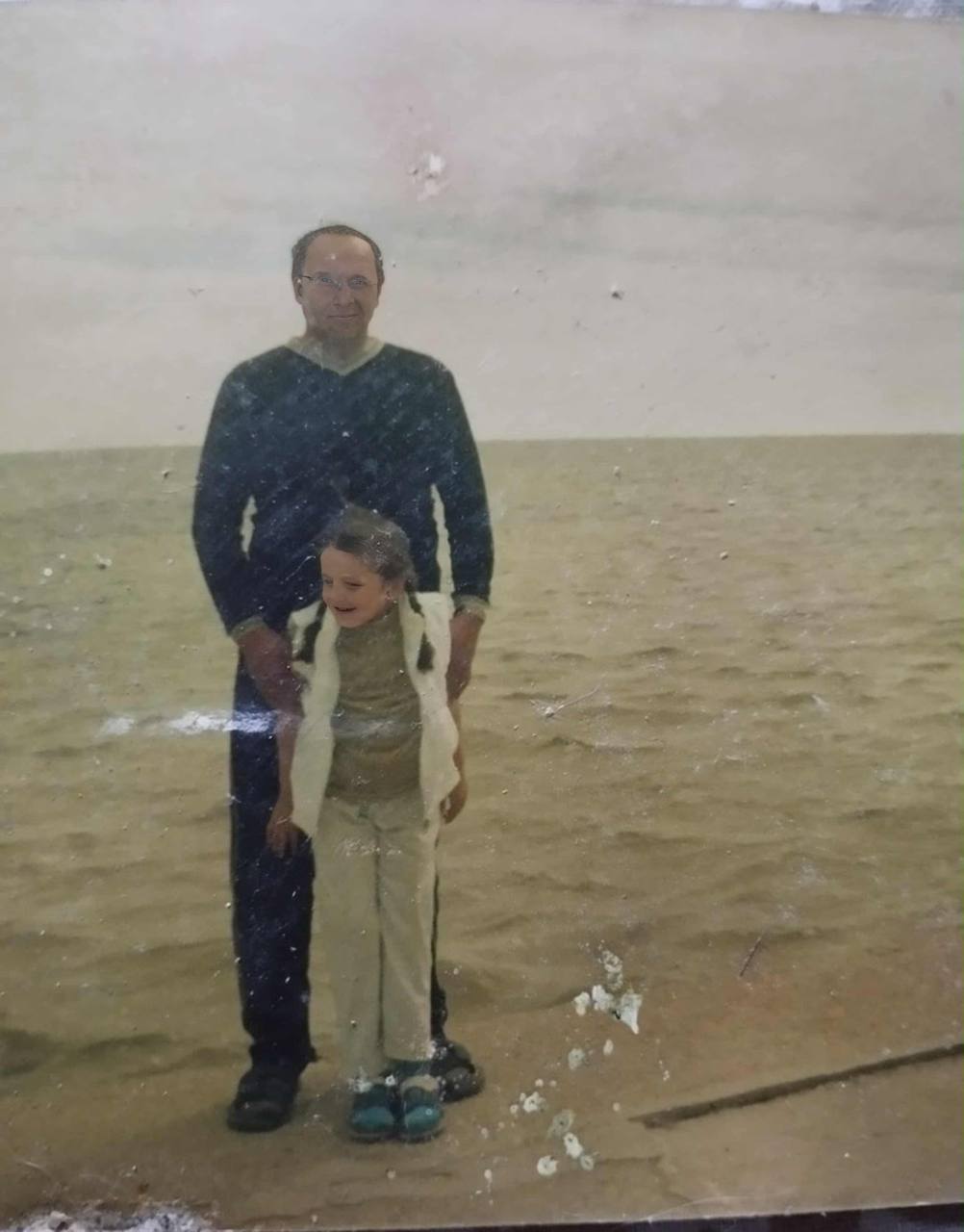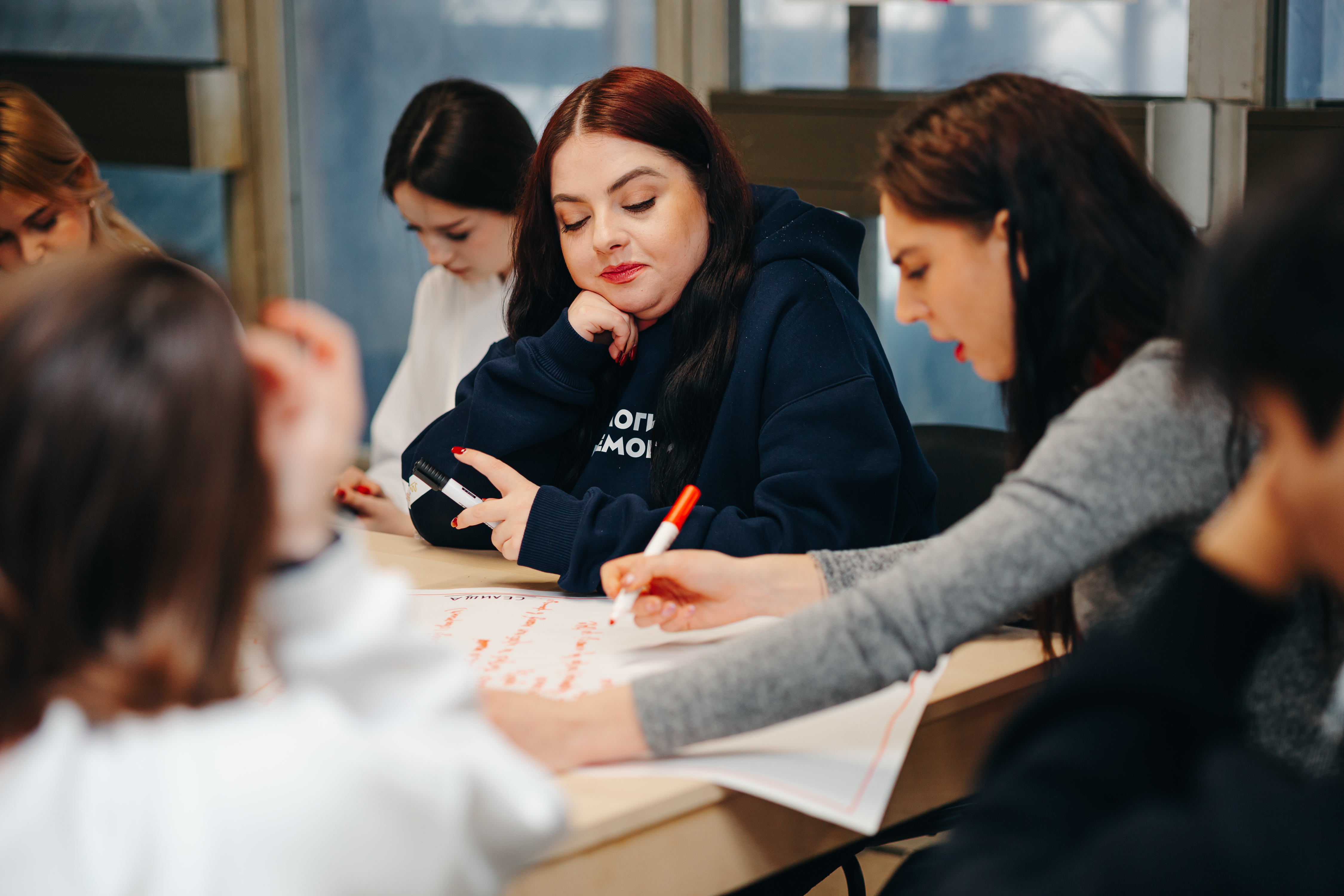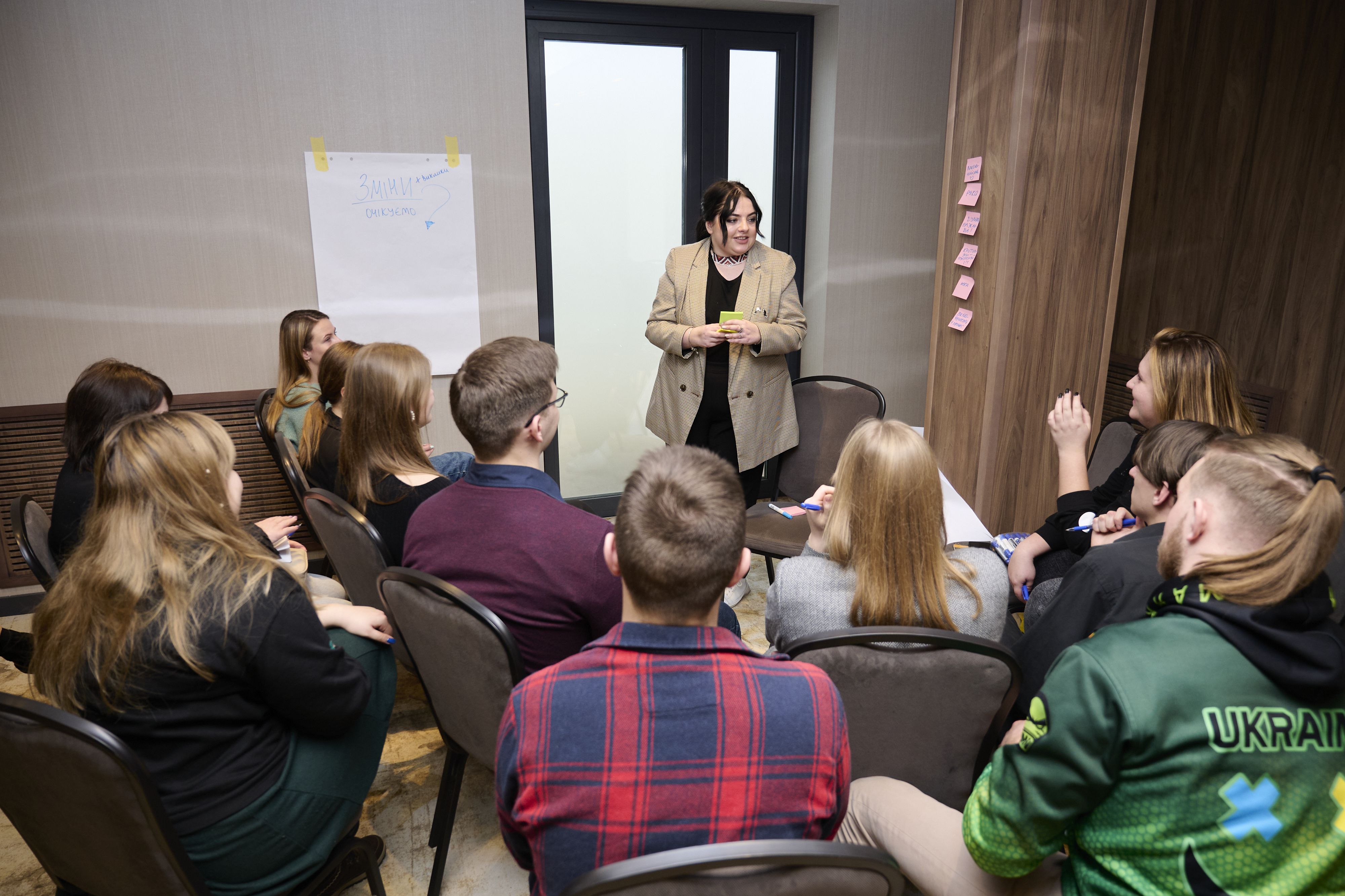Choosing not to be broken
For Lesia Holoiad, a 28-year-old youth leader in Ukraine, the definition of peace is simple and absolute: “… peace means justice. And if justice requires a struggle, then it is worth it.”
Russia’s full-scale invasion of Ukraine started in early 2022. Even as the war and the destruction continue to relentlessly reshape communities across Ukraine, Holoiad works daily to build her vision: “My peace is when everyone in Ukraine can study and work without fear, dream without limits and plan without reservations.”
Read her powerful story of hope and courage. In her own words, peace starts with the person who, despite everything, "chooses not to be broken."
Death is always close by
I live in the small city of Zboriv in Ternopil Oblast, western Ukraine. However, my life has long extended far beyond the boundaries of this place. I work as a programme manager as well as a youth policy advisor, trainer and facilitator for a non-governmental organization called Youth Platform.
I focus on youth councils and the participation of youth in their communities and the country. I am a young woman with a disability, but this has never stopped me from working with communities, and other young people, and speaking about the future. I want to remain in Ukraine – this is my choice and my strength.
Yet, I feel as though my entire youth has been spent in a state of war. When I was finishing school, the war began. I got my master’s degree, took my first career steps, fell in love and discovered the world – all against the backdrop of war. I can barely remember life without it anymore.
Death is always close by. I have lost many friends and colleagues to the war. Many more are now on the frontlines. My friends and I volunteer, because we cannot stand aside and watch.
Peace has turned into a dream that we all carry in our hearts. Funerals of young people have become places where we all meet. Now, we all have people in our social media feeds and phonebooks who will never message or call again.
The most difficult moments for me are working after large-scale attacks, or even during them. When you hear explosions and smell the smoke, you still need to stand in front of young people, giving them faith, energy and hope. Inside, you feel exhausted and fearful, but you cannot show weakness because public figures and activists are the ones others look up to for strength to carry on.
We are not postponing life
I clearly remember one training session for youth councils. In the night, a massive air raid with missiles and drones began. We spent almost the entire night in a shelter with teenagers and students. There was panic and confusion; the people were trembling, some were crying, and the explosions could even be heard underground. Later, in the morning, we left the shelter and continued the training. I can still picture this scene: young people – ready to learn, debate, and create something new, even when war is raging all around them.
As part of the Dialogues of Victory project, which was implemented across Ukraine with the support of the UN Development Programme (UNDP) and with funding from the Government of Denmark, we often held meetings with young people in shelters. There, where it should have been quiet and peaceful (but wasn’t), we talked about the future, about reconstruction and about change.
This is a symbol of Ukrainian youth, because we are not postponing life until later – we are living and acting now, even in the shadow of war.
Working in wartime is a constant balancing act between exhaustion and responsibility. On one hand, you live in a country where every day brings news of losses, attacks and destruction. On the other hand, you have to stand in front of young people and talk about the future, about hope, and about development. That is perhaps the hardest thing: pulling yourself together when you also feel cracked inside.
During the war, youth work takes on new meaning. Young people today are living with uncertainty, fear and loss. When they come to a training session or meeting, they bring this experience with them. I see both exhaustion and determination in their eyes. My task is to help them find the strength within themselves to keep acting.
Working during the war now means living with a constant sense of fragility. It means planning a programme while knowing it could be disrupted by air raids and bombing. It means preparing an event while understanding that some of the participants might not arrive because their community has just been attacked. But despite everything, you still do the work, because this very work gives the feeling that life goes on.
For me, peace means justice. And if justice requires a struggle, then it is worth it. My peace is when everyone in Ukraine can study and work without fear, dream without limits and plan without reservations. And that is what we are working for every single day.
Peace doesn't always arrive in silence
I often think about the symbols of peace in my life. For me, it is the sea – the Ukrainian seaside, Skadovsk. I remember my childhood there. The warm mornings when my parents and I would go to the sea before the heat set in. The sun was just rising and its rays painted golden paths on the water. I would run barefoot across the warm sand that seemed endless and collect small shells as if they were treasures.
Mum would laugh, and Dad would point out the gulls circling over the waves. In those moments, the world felt safe and infinitely kind. And now, Skadovsk has been occupied by Russian forces since the morning of 24 February 2022, the first day of Russia's full-scale invasion of Ukraine. This city, which once smelled of watermelons and salt wind, is now filled with fear.

Lesia Holoiad and her father at the beach in Skadovsk. Credit: Lesia Holoiad
But despite all of this, I have not been broken. My friends and loved ones keep me going. I'm supported by the young people I work with. I look at them and realise that if we lose faith and goodness, the whole country will lose faith. We do not have the right to let that happen.
The world often asks: what can be done for Ukraine? For me, the answer is simple: be just. Understand our reality, don't turn away, support youth development, and give young people space to grow. And remember that justice sometimes has to be fought for.
If I were to send a message to other young people around the world who are living through conflicts or crises, it would be very simple: be kind and love. Because love is also a weapon, just a different kind. It doesn't destroy; it creates us.
Peace doesn't always arrive in silence. Sometimes, it is born through pain, through loss, through struggle. But it always starts with the person who, despite everything, chooses not to be broken.
The original version of the blog is available in Ukrainian.
Learn more about UNDP’s work in Ukraine and its effort to empower youth worldwide.




